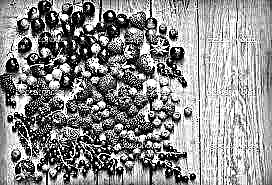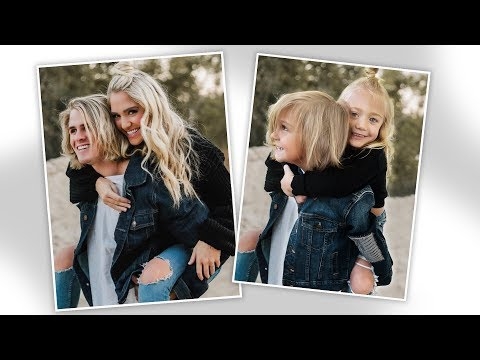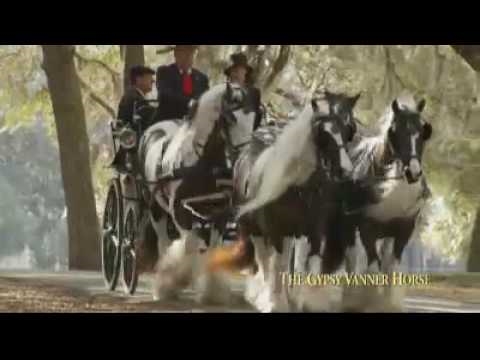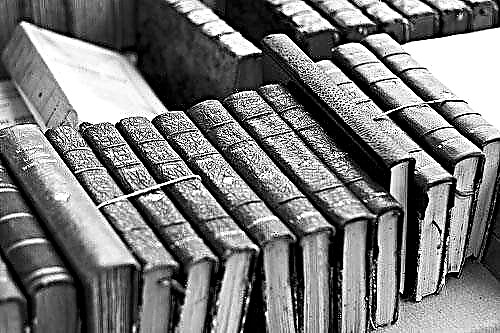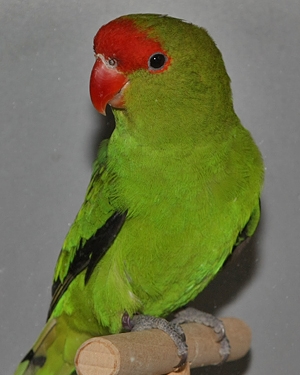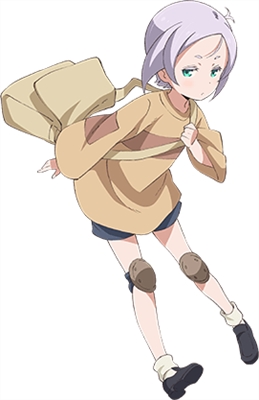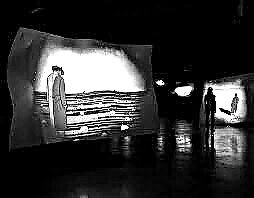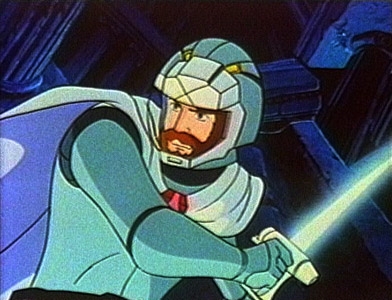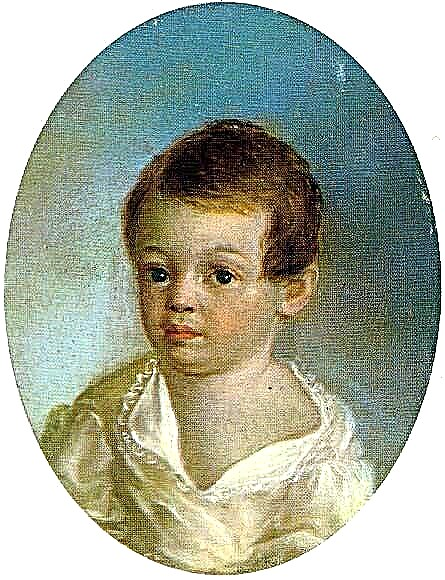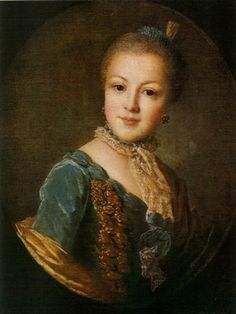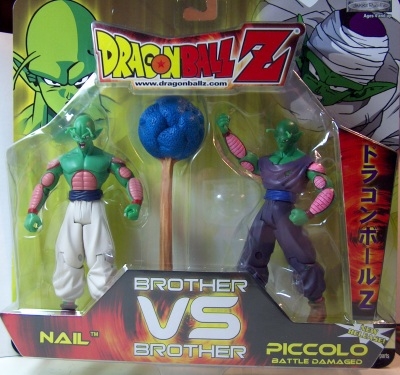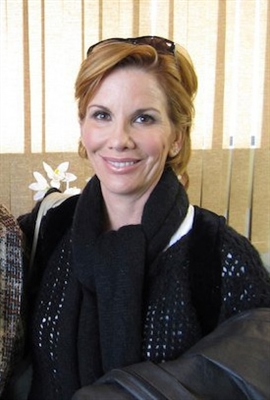The beginning of April 1945. The narrator, a boy named Kolya, lives in a small rear city with his mother and grandmother. Kolya's father at the front. Mom works as a nurse in a hospital, and the boy himself is in third grade.
Mom and grandmother try to save Kolya from hunger and other vicissitudes of war. The war is coming to an end, but there is not enough food, and the boy is constantly hungry. Junior classes of the school are given coupons for additional meals. There are not enough coupons for everyone, and the children go to the dining room in turn. Colin's turn comes up on the first day after the holidays.
The eighth canteen, which Kolya has to go to, is presented to the boy as paradise with chandeliers and chandeliers. In fact, the dining room is a huge and cold room, full of children from all schools in the city. Kolya sits at the table next to the two "smooth boys" who eat while playing, racing. They give the rest of the bread to the ubiquitous sparrows, so as not to leave them jackals.
Who are the jackals, Kolya finds out the next day. In order not to meet the “smooth ones”, he comes to the dining room later and finishes lunch, when an unfamiliar boy with a yellow face appears in front of him and asks Kolya for the remnants of the hated oat soup. Humbling, he gives away the soup, and some older girl shares her portion with the boy’s younger sister. Kolya understands that this is the jackals - starving children who shabble in school canteens.
The next day, Kolya arrives at the eighth canteen early due to canceled physical education. In his briefcase lies a piece of bread, which the boy pulled out of the sideboard the night before. In the longest turn, right in front of Kolya, a company of arrogant and tall boys, led by a nosy guy, wedges in. From the gang carries tobacco and "some kind of brute and evil force, which even adults preferred not to mess with."
I did not envy such gangs, then there were a lot of them, almost in every yard or even class - unrighteous laws, evil and injustice reigned there.
Kolya begins to look out for the yellow-faced boy, but sees other jackals, more arrogant - they steal food from trays. A roommate tells Kolya that such jackals can take away not only bread, but also a plate with soup or a meatball. At this moment, Kolya sees a yellow-faced. This time he also takes bread without permission. The robbed girl begins to roar, a whine rises, and the yellow-faced man has time to jump out into the street.
Kolya hears a gang of noses agree to teach a jackal a lesson. He jumps out after the boys who have already attacked the yellow-faced. He takes the blows "with some incomprehensible‹ ... ›humility," and then grabs the nosed leader by the throat. The gang cannot pull the leader out of his dead grip, the yellow-faced man releases the half-strangled boy himself, and the gang cowardsly snails.
Having spent the last forces in the fight, the yellow-faced boy loses consciousness. Kolya rushes to the cloakroom for help, and she solders the yellow-faced with sweet tea. He confesses to the woman that he did not eat for five days.
Kolya gets acquainted with Vadka, who is three classes older than the boy, and his younger sister Marya. He learns that the children were recently evacuated from Minsk to the rear. Their father died at the beginning of the war, and their mother immediately became ill with typhoid and arrived in a typhoid hut. Marya lost money and food stamps, and now the children survive as best they can. In order not to upset the sick mother, the children write to her cheerful and optimistic letters every day, in which there is not a word of truth.
Kolya is irresistibly drawn, like a magnet, to Vadka. He feels that his new friend is different from everyone else, even from adults.
The freedom granted for the battle against hunger, the independence obtained in order not to die, looked different.
Vadim asks Kolya to lend him some jacket before the summer. He wants to sell his coat, warm and solid, in order to somehow feed himself before the start of the month and new grocery cards.
Colin's mother catches the guys in the yard when Vadim tries on a jacket that is too thin for early spring. Kolya tells her about the misfortunes of Vadik and Mary. A woman brings them home, nourishes them heartily and puts them to bed. After examining the children's notebooks, Colin's mother finds out their surname - Rusakovs - and decides to help them. The next day, she calls the schools where her brother and sister study, and reports on their plight. Kolya does not know about this - he asked to keep everything secret, so as not to upset the Rusakov’s mother.
The next day, Kolya skips school. All morning he, together with Vadim, walks around the city in search of food - an adult boy over the years does not want to sit on the neck of strangers.
This happens often, at all times ‹...› a younger boy, like a faithful squire, is ready to follow a boy who is just a little older than him.
It turns out that Vadik knows all the "bread" places of the city. Kolya understands that he is not the first week to jackal. On the way, Vadim talks about a punks who take food in the canteens, threatening them with a knife. Then the guys go into the room under the stairs of a three-story communal apartment, which was allocated by the evacuated Rusakov. Kohl had never seen such a wretched room. Bed linen was burned due to typhoid, and the windows remained sealed crosswise with paper. After the death of Vadkin’s husband, mother lives in a dream, so Vadim is so afraid of her.
On that day, Kolya decided to share his lunch with Vadik in the eighth canteen. Near the cafeteria, Marya catches up with them and reports that the school has allocated special food vouchers for them, the director promised new grocery cards, and the teachers raised some money.
In the dining room, Marya gets lunch first, but soon loses the second dish - cutlets. They are taken away by a “guy with a pumpkin-like face”. Armed with a tray, Vadim stands up for his sister, despite the sharp razor in the jackal’s hand. The thief runs away, leaving an unfinished cutlet. The guys do not look at her, although yesterday they would have finished eating without hesitation.
It turns out, I thought, when hunger recedes, does the person immediately become different? But who then rules whom? Starvation by man? Man hunger?
The “Pumpkin Guy” guards Vadim at the entrance to the canteen and spoils his coat with a blade. Vadim is upset - now he will not be able to sell it.
The guys break up - Vadim goes to school, and Kolya and Marya compose a letter and take it to a terrible typhoid hut. On the way, Marya tells how she and her brother survived after losing cards, and how embarrassed to beg for food in the canteen at first. Only then, "hunger kills all shame."
Three events await Kolya in the evening. First, Vadik comes stunned from school - the teachers collected a whole portfolio of products for his brother and sister. Colin's mom says she has nothing to do with it. The second event is Mary’s story about how she and her brother went to the bathhouse. Vadik did not let her sister go alone, the girl could be scalded, and Marya had to wash herself in the men's department. Since then Marya has been ashamed to go to the bathhouse.
The third event turns out to be a scolding, which suits Kolya’s mother, who learned that her son skipped school. Kolya is trying to explain that he helped Vadim to search for food, but his mother does not want to listen. She decides that Vadim badly affects her son. Kolya is indignant, in his attitude to his mother, who is always so strong and wise, "some kind of thin partition is breaking."
Fragile, fragile, this thing is a children's soul. Oh, how to take care of it, oh, how to! ..
After that, catching up with Kolya “trembled in spirit,” he doesn’t succeed in friendship with Vadik;
Throughout the spring, Colin's mother tells Vadim that the patient from the typhoid hut feels rather well. On May 8, she comes home from work upset and in tears.Kolya is frightened - suddenly now, on the eve of victory, something happened to dad. Having collected a small gift, mom and Kolya go to the Rusakovs and behave fussy and restless there.
The next day, May 9, the whole city celebrates Victory Day. The director of the school congratulates the children, and the teacher asks to remember everything experienced, because they, the children of war, will be the last to preserve these memories. They must preserve "our grief, our joy, our tears" and pass this memory on to their children and grandchildren.
Having pushed after classes in a festive crowd, Kolya goes to Vadim and finds out that his mother died a few days ago. Colin's mother found out about this only yesterday, and therefore she behaved so strangely. Listening to Vadim, Kolya feels like “black water is opening between them”, as if he and Mary are floating somewhere, and he, Kolya, remains on the shore. Vadim reports that they and Mariya will be sent to an orphanage, and asks Kolya to leave.
Mary was still lying, she was sleeping in some kind of fake, fairy dream, only the fairy tale was unkind, not about the sleeping princess. Without any hope there was this fairy tale.
One more time, the last one, Kolya meets Vadim at the end of summer. "Immediately grown up, unsmiling guy" reports that their orphanage is leaving.
In the fall, Kolya moves to the next class, and he is again given coupons for additional meals. In the eighth canteen, a hungry boy approaches him again, and Kolya shares his portion with him.

